This is part two in the three part series looking at 2 Nephi 2. In last week’s post we learned of the necessity of the atonement and resurrection. This week Lehi continues talking to his son Jacob about the effects of the atonement and resurrection and the need for opposition in all things. This is the only place in the scriptures where a prophet directly discusses the need for there to be a clear opposition between good and evil in order for us to be able to return to our heavenly home.
Just as I did last week, I will give the verses from 2 Nephi 2 then follow them up with discussion of the points of doctrine contained in those verses.
The results of Christ’s mediation
10. And because of the intercession for all, all men come unto God; wherefore, they stand in the presence of him, to be judged of him according to the truth and holiness which is in him. Wherefore, the ends of the law which the Holy One hath given, unto the inflicting of the punishment which is affixed, which punishment that is affixed is in opposition to that of the happiness which is affixed, to answer the ends of the atonement—
I’ll only discuss the first half of this verse here. The second half will be discussed with the subsequent verses.
Verse 10 says that because of Christ’s intercession for all of us, that is, because of his sacrifice and resurrection performed on our behalf, all people must come to stand before God. How does that work? How does his atonement result in us being required to stand before Christ in judgment?
Let’s remove Christ from the equation for just a moment. Pretending that there is no such thing as a Savior in the plan of salvation then everything that happens between God and his children remains between God and his children. He sets the laws, we break the laws. We cannot reconcile ourselves in an eternal way to pay for the laws we break, therefore we are cast out of God’s presence for eternity. Remember, God cannot tolerate or abide sin with the least degree of allowance (D&C 1:31). He is, after all, the great law giver. What kind of law giver would our Father be if he tolerated bending and breaking of his own rules? How could he possibly govern the universe under such conditions?
Our Father in Heaven is all about justice. He feels mercy, but cannot extend it directly, for mercy would rob justice. (That’s another lesson.) But God could send someone who could extend mercy, but the price to be able to do such a thing would be having to pay the total debt load for all of God’s children. This Mediator for mankind would have to, in the legal sense of the word, purchase our souls from the demands of eternal law, freeing the Mediator, he who would stand between the demands of God’s laws and God’s children, to offer us mercy, in exchange for our obedience to His requirements, mistakes and all.
This is why verse 10 says that “because of the intercession for all, all men come unto God; wherefore, they stand in the presence of him, to be judged of him according to the truth and holiness which is in him.” Because Christ has paid the burden of our sins to God, he now stands as the holder and possessor of our debts to the law. We are now His to dispose of as he sees fit. When we agreed to the plan of salvation in the pre-existence, we agreed to place our souls in the hands of Jesus, who loves us as much as our Father does. This is the reason we shouted for joy (Job 38:7). We had someone who was willing to pay our debt and let us retain the moral agency our Father had granted us. We literally owe Christ everything.
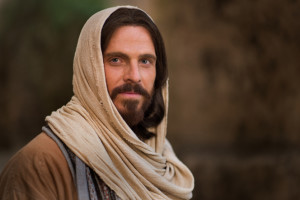 As a result of Christ’s payment for our souls, God has committed all judgment into the hands of his Son. John 5:22 says: “For the Father judgeth no man, but hath committed all judgment unto the Son:” Why did God do this? Because God cannot directly extend mercy, which would rob the demands of his own justice, but because of Jesus’s sacrifice and resurrection he could offer both mercy and justice. This is why Jesus says that he died for us in order to draw us to him. By dying for us he now has the rights of judgment on our souls. See 3 Nephi 27:14.
As a result of Christ’s payment for our souls, God has committed all judgment into the hands of his Son. John 5:22 says: “For the Father judgeth no man, but hath committed all judgment unto the Son:” Why did God do this? Because God cannot directly extend mercy, which would rob the demands of his own justice, but because of Jesus’s sacrifice and resurrection he could offer both mercy and justice. This is why Jesus says that he died for us in order to draw us to him. By dying for us he now has the rights of judgment on our souls. See 3 Nephi 27:14.
And my Father sent me that I might be lifted up upon the cross; and after that I had been lifted up upon the cross, that I might draw all men unto me, that as I have been lifted up by men even so should men be lifted up by the Father, to stand before me, to be judged of their works, whether they be good or whether they be evil—
The need for opposition
I’m going to break with the pattern here and repeat verse 10, but we will only be looking at the second half of the verse then continuing on from there.
10. And because of the intercession for all, all men come unto God; wherefore, they stand in the presence of him, to be judged of him according to the truth and holiness which is in him. Wherefore, the ends of the law which the Holy One hath given, unto the inflicting of the punishment which is affixed, which punishment that is affixed is in opposition to that of the happiness which is affixed, to answer the ends of the atonement—
The second half of this verse may sound almost like doublespeak (talking in circles), but it isn’t. The ends of the law God made for us, the purpose for these laws is to allow us to return to his presence. Knowing that some would be obedient and some not so obedient, a judgment is required so we are each rewarded according to whatever privilege we are willing to enjoy. If we come to earth and find more delight in Satan’s ways then our degree of glory, our reward will be far less than the man or woman who delights in the ways of the Lord and deserves an eternal weight of glory to be added to them forever.
All who came through mortality, with only the exception of a few who become sons of perdition, will be rewarded with glory after this life. This is the end of the law, the reason the laws were created. Remember that men are that they might have joy (2 Nephi 2:25).
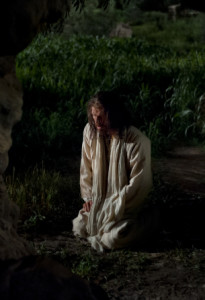 The atonement paid for the sins of only those who repent and come unto Christ. Those who refuse his payment for their sins must suffer as He suffered. They must spend time in hell and go through the very kind of torment Christ suffered on our behalf. His atoning sacrifice and resurrection were performed with the end or intent that we would one day be brought to stand before him and be judged for our behavior during our time of probation in mortality.
The atonement paid for the sins of only those who repent and come unto Christ. Those who refuse his payment for their sins must suffer as He suffered. They must spend time in hell and go through the very kind of torment Christ suffered on our behalf. His atoning sacrifice and resurrection were performed with the end or intent that we would one day be brought to stand before him and be judged for our behavior during our time of probation in mortality.
His judgment is what will determine where we spend the rest of eternity, whether it is in God’s presence or elsewhere. So the ends of the law lead us to either a blessing or a punishment which was determined before the earth was created. The punishments and blessings were affixed or set. These punishments and blessings are the end or purpose of the atonement. Remember, He interceded on our behalf for the sole purpose of enabling us to be able to choose our eternal destiny, whether to return home or live elsewhere.
It is a scary thought that God really does give us only what we ask for. We can spout rhetoric all day long about how we feel about something or what we want, but in the end, what we want in life is seen in how we live our life. That is what God uses as the basis for our judgment. Our choices really do make a difference.
Now let’s tackle the next couple of verses.
11. For it must needs be, that there is an opposition in all things. If not so, my firstborn in the wilderness, righteousness could not be brought to pass, neither wickedness, neither holiness nor misery, neither good nor bad. Wherefore, all things must needs be a compound in one; wherefore, if it should be one body it must needs remain as dead, having no life neither death, nor corruption nor incorruption, happiness nor misery, neither sense nor insensibility.
12. Wherefore, it must needs have been created for a thing of naught; wherefore there would have been no purpose in the end of its creation. Wherefore, this thing must needs destroy the wisdom of God and his eternal purposes, and also the power, and the mercy, and the justice of God.
13. And if ye shall say there is no law, ye shall also say there is no sin. If ye shall say there is no sin, ye shall also say there is no righteousness. And if there be no righteousness there be no happiness. And if there be no righteousness nor happiness there be no punishment nor misery. And if these things are not there is no God. And if there is no God we are not, neither the earth; for there could have been no creation of things, neither to act nor to be acted upon; wherefore, all things must have vanished away.
Verses 11-13 establish an eternal principle, that of a need for opposition in all things. After we look at this need for opposition we will look at how it is used in the plan of salvation to make Saints out of sinners.
 First a word about agency. Our agency is moral agency, not absolute agency. We are NOT allowed to make any choice we want about anything. That amounts to total chaos. No, our agency is limited in mortality to moral choices. Moral choices include good and bad, right and wrong. The object of our use of moral agency is for us to use our agency to turn us into something better that what we currently are. Using Christ’s atoning sacrifice we can repent and choose to be better, to love the good more than we love evil. The end of our agency, the purpose of our agency is to prove where our heart lies, to show us and the Lord the true desires of our soul. We do this by how we use our agency.
First a word about agency. Our agency is moral agency, not absolute agency. We are NOT allowed to make any choice we want about anything. That amounts to total chaos. No, our agency is limited in mortality to moral choices. Moral choices include good and bad, right and wrong. The object of our use of moral agency is for us to use our agency to turn us into something better that what we currently are. Using Christ’s atoning sacrifice we can repent and choose to be better, to love the good more than we love evil. The end of our agency, the purpose of our agency is to prove where our heart lies, to show us and the Lord the true desires of our soul. We do this by how we use our agency.
In order to make a true choice, a pure choice, we need to be able to choose between polar opposites. If we only have a choice between some good and a little more good or some bad and a little more bad then we don’t really have the ability to go very far in changing our desires. We must be able to become completely evil by choice, or completely holy by choice. We are in this life to prove ourselves worthy of progressing on to godhood, right? To do that we must also have the same possibility to prove ourselves to be completely in Satan’s camp.
True righteousness cannot be achieved without the ability to also choose complete wickedness. If these extremes are not present then the whole purpose of the plan of salvation becomes frustrated and is of no worth. For if we are only allowed a little distance in choice then, compared with our end goal of becoming like our God, there really isn’t any choice at all, for no matter what we chose in a limited situation, we would never be able to become like Him.
This is why the verse says that without a pure and complete choice between good and evil, all things may as well ‘vanish away.’ “Wherefore, all things must needs be a compound in one; wherefore, if it should be one body it must needs remain as dead, having no life neither death. …” For there is no eternal life in only a little ability to choose, so we may as well be dead, but wait, just as we couldn’t attain to eternal life, we also couldn’t attain to complete spiritual death. We would, in essence be floating in an eternal state of spiritual suspension, without the ability to progress or regress. And this goes against the ends of the law, or the purpose of the plan of happiness, which is to make it possible for the children of God to become like Him, gods.
This is why verse 12 says that without a purity in moral choice, that is opposition in all things, the whole creation of the earth and our mortality loses it’s purpose, which would also destroy the wisdom of God, which would make Him no longer a God who has all knowledge and all power.
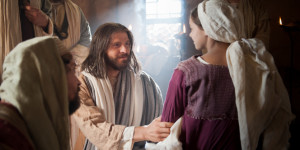 It is a domino effect. If God has all knowledge and is all powerful then His plan for our exaltation must work, and to do that there must be a clear choice that once made either leads our souls to exaltation or to damnation. No other option is available. Any other philosophical option would destroy God as our creator and Father.
It is a domino effect. If God has all knowledge and is all powerful then His plan for our exaltation must work, and to do that there must be a clear choice that once made either leads our souls to exaltation or to damnation. No other option is available. Any other philosophical option would destroy God as our creator and Father.
The final point is found in verse 13. The ends of the law, the purpose of the laws of God are to bring his children happiness equal to his own. Moses 1:39 says that God’s work and his glory are to bring to pass our immortality (resurrection) and our eternal life. He has eternal life. To experience the same kind of life God lives would give us the ultimate joy that He experiences.
Righteousness is the source of happiness. The laws of God create righteousness within us. By the same token, rebellion comes of evil, and because of the law of opposition, that which is born of evil brings misery, just as that which is born of good brings happiness. That is the nature of the universe in which we live. We cannot change it. It is just a fact of life that good creates joy and evil creates misery. We have our two goal posts in front of us that serve as our examples. We have Christ on one end of the playing field. He represents to us all that is praiseworthy and desirable in the eternities. On the other end we have Satan, who beckons us with the desires of the flesh, with selfishness and hatred.
Satan knows what will happen at the judgment, so he focuses our attention on the here and now. He knows full well that after the judgment those who followed him will be less happy or outright miserable for eternity. He cannot promise us anything good in the eternities, so he promises us fun and riches today. God has told us that Satan is miserable and desires that all men be miserable like him 2 Nephi 2:27. The purpose of all commandments is to create within us righteousness so we can be happy eternally, not just here and now.
Final Thoughts
It is the nature of the universe that obedience to God’s laws create harmony and happiness. It is also the nature of the universe that any other choice brings misery. In all things God points us to the eternal nature of our souls and invites us and entices us to choose the good so we can be happy forever.
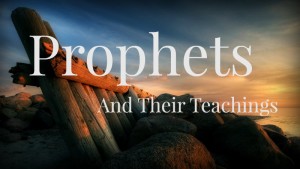
To read more of Kelly Merrill’s articles, click here.
Satan cannot promise us happiness after this life. That must be one of his restrictions. But he does promise us thrills and chills in this life. He does all in his power to take our eyes of what happens after death and focuses us on the present. If he can get us to pursue glory here and now at any cost then he costs us our eternal soul’s potential reward.
Next week we will talk about the nature of our probationary state we call mortality.
About Kelly P. Merrill
Kelly Merrill is semi retired and writes for https://gospelstudy.us. He lives with his wife in Idaho. His strength is being able to take difficult to understand subjects and break them down into understandable parts. He delights in writing about the gospel of Christ. Writing about the gospel is his personal missionary work to the members of the Church and to those of other faiths who are wanting to know more about Christ's gospel and His Church.

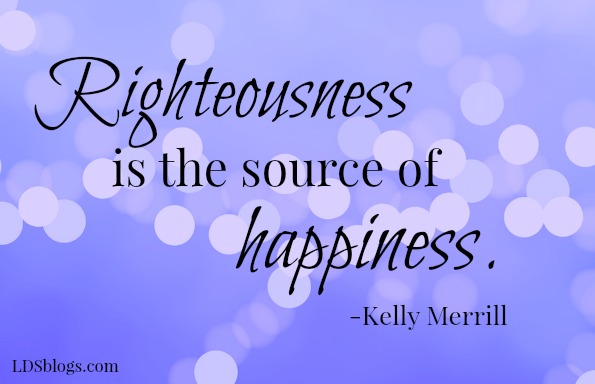


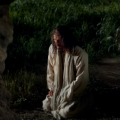
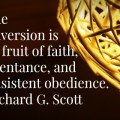

With all do respect and with humility, I’m confused, doesn’t the three degrees of glory refute this commentary about these scriptures. I really am confused. I mean we do sometimes cigar degrees of wrong and right, and when sometimes what’s right and what’s more right. Please reply.
Stacy,
I would love to answer your question, but I have one of my own first. You say that “we do sometimes cigar degrees of wrong and right.” I must confess that I cannot figure out what you mean by this. If you will explain further, and perhaps give me a couple of examples, I would love to respond and clarify what I mean by what I say in the commentary. Also, please include the verse or sentences in question so I know which part I need to address.
Thank you so much for reading the article. I look forward to hearing from you.
Kelly